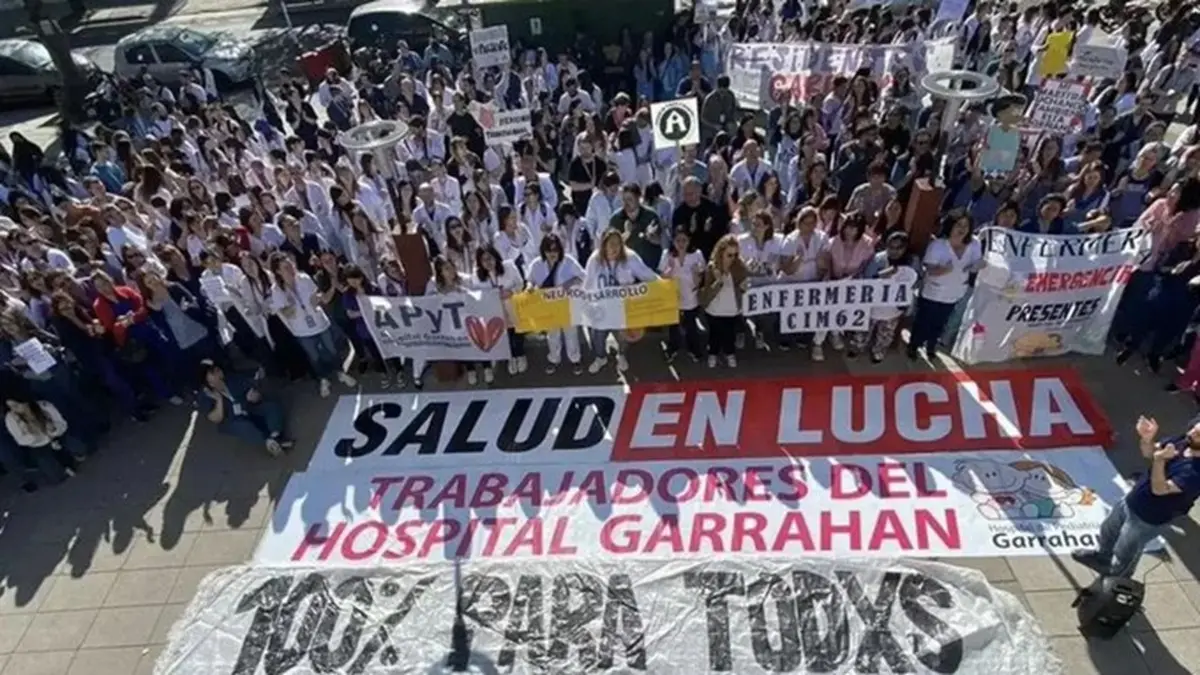The Eternaut Sparks Questions Among Those Born During the Argentine Dictatorship

Photographs of the missing Oesterheld family superimposed on the poster for The Eternaut. X/ @VirVecchioli
May 7, 2025 Hour: 12:28 pm
The Netflix series triggers renewed public discussion in Argentina about the crimes of the dictatorship.
The Netflix series The Eternaut has triggered a surge in inquiries from people born in Argentina during the dictatorship (1976–1983) regarding their identity and has reignited the search for the grandchildren of Hector Oesterheld, the author of the original work.
RELATED:
SouthCom Chief Meets With Milei in Argentina
Based on the comic strip first published in 1957, the Netflix series is not set during the dictatorship but maintains a strong connection to the darkest chapter of Argentina’s history due to the tragic fate of its author, who was kidnapped and disappeared by the Argentine military in 1977 along with his four daughters—Beatriz, Diana, Estela, and Marina—because of their involvement in the Montoneros guerrilla.
Diana and Marina were pregnant at the time of their abduction. They and their father, sisters, and children—who are believed to have been born in captivity—remain disappeared.
Following the successful release of The Eternaut, human rights organizations Mayo Square Grandmothers and H.I.J.O.S. launched a campaign to intensify the search for Oesterheld’s grandchildren, which also prompted identity inquiries from other individuals born during those years.
“The impact of the series has generated more inquiries in recent days, and we expect more will follow. Any widely embraced cultural phenomenon that is as well-executed and as deeply ours as the series is a huge opportunity for us to promote the search,” said Manuel Gonçalves, grandson of a disappeared political prisoner and current secretary of Mayo Square Grandmothers.
The campaign, which has gone viral on social media under the slogan “Are you watching The Eternaut?”, invites people born between November 1976 and January 1978—possible birth dates of Oesterheld’s grandchildren—who have doubts about their identity to contact the Mayo Square Grandmothers organization.
After decades of work, the Mayo Square Grandmothers are still searching for around 300 people—sons and daughters of individuals who were kidnapped and murdered by the military regime.
Many of these children were born in clandestine detention centers, illegally taken, and had their identities altered. The latest recovery occurred in January, when the Mayo Square Grandmothers announced the discovery of “Grandchild 139.”
This week’s campaign also includes public space interventions and posters that combine imagery from the Netflix series with photographs of the disappeared members of the Oesterheld family.
“Through a series that has global reach, we hope more people continue to ask questions and search for their true identity—understanding that if you were born during the dictatorship in Argentina, you might be one of the Oesterheld family’s grandchildren, or one of the other 300 stolen babies we are still looking for,” Gonçalves added.
“With the worldwide explosion of the series, we saw an opportunity to spark debate and to ask again: Where are the remains of the Oesterheld family? What happened to them? What happened to their children?” said Carlos Pisoni, a member of the H.I.J.O.S. organization.
The interest in “The Eternaut” and the story of its author serves as a bridge to reach new generations, countries, and people unfamiliar with the struggle for the rights of the families of Argentine political prisoners and the disappeared.
“This opens the door to spreading the message about the search for grandchildren to other countries. The missing grandchildren could be anywhere in the world,” Gonçalves noted, recalling that the work of the Mayo Square Grandmothers has led to the discovery of missing grandchildren in countries such as Spain, the Netherlands, and the United States.
This renewed momentum in the search for grandchildren is taking place in a politically hostile context, due to the actions of far-right President Javier Milei, who promotes denialist rhetoric and has defunded institutions dedicated to preserving the memory of the dictatorship’s crimes.
“While ‘The Eternaut’ is a global success, the Argentine government is cutting funding for ‘Memory, Truth, and Justice’ policies, including the National Commission for the Right to Identity (CONADI), which is vital to the search for the grandchildren. The series also raises the debate about the role of the Argentine state on this issue,” Pisoni affirmed.
teleSUR/ JF
Source: EFE






